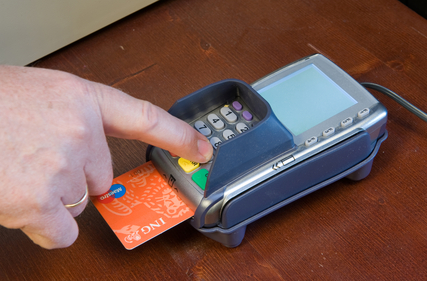“Pin now, pay later” normalises debt, financial watchdog warns

A move to allow people to “pin now and pay later” in physical shops has been slammed by MPs and financial services watchdog AFM.
People already have the option to defer payment when buying goods online but now payment platforms such as Ayden, Klarna and Billink want to extend this to purchases in high street shops.
The amount, which is a defacto loan from the payment platforms, has to be paid within three months. The platforms charge little or no interest, exempting them from strict rules regarding credit checks, but if an installment is missed the collection costs can be high. These constitute 40% of some platforms’ “pin now pay later” earnings, with the rest made up of fees from shops.
The platforms do nothing to make sure a loan is appropriate, AFM spokesman Teun van der Velden told broadcaster NOS. “If you use this service then perhaps you used it last week as well and you lose sight of your payments,” he said. “This accumulation of debt and the normalisation of taking on debt is a worrying development.”
An AFM investigation into the deferred payment industry showed some 45 million such transactions in 2022, with a value of €4.8 billion. Of that amount, some 3% went to collection agencies. In 2023, around 600,000 transactions were made by children between 13 and 17 years old, and the average value was €50. Two in three transactions were for clothes.
Van der Velden said deferred payment in physical shops is more problematic than online. “If people choose to pay later online it is often because they want to try out the shoes or the pair of trousers first. But that is not the case in a physical shop where it’s more often a case of ‘I don’t really have the money so I’ll take the pay later option’. That can be the start of a lot of problems,” he said.
Stricter European rules for “pin now, and pay later” services will come into effect in November 2026.
According to junior legal protection minister Teun Struycken, bringing the measures forward is impossible. Last week, MPs voted in favour of a motion to ban deferred payments in physical shops, which the junior minister will react to in mid-November.
Thank you for donating to DutchNews.nl.
We could not provide the Dutch News service, and keep it free of charge, without the generous support of our readers. Your donations allow us to report on issues you tell us matter, and provide you with a summary of the most important Dutch news each day.
Make a donation